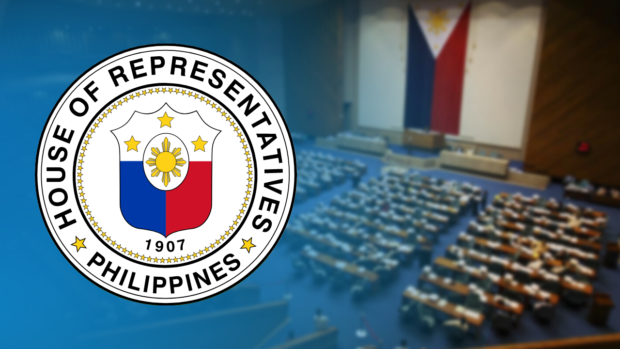
House of Representatives logo and plenary. INQUIRER FILES
MANILA, Philippines — The proposed Magna Carta on Religious Freedom Act, which would prohibit the hampering or curtailing of a person’s right to religious belief, has been passed on third reading at the House of Representatives.
During the House’s session on Monday — its first session day for 2023 — 256 lawmakers voted in favor of House Bill No. 6492, one voted against it, and three abstained.
If enacted, the said bill would mandate the government to “protect and uphold the fundamental and inalienable right of every person to freely choose and exercise one’s religion and beliefs and to act and live according to one’s conscience.”
The said bill guarantees the right of people to practice their preferred religion — or to not practice any religion — without the fear of the religion being regulated.
“The right of every person to freedom of religion and liberty of conscience, as well as the free exercise or expression thereof, as defined and enumerated in this Act, shall be protected by the State. It shall not be denied, burdened, regulated, or curtailed even if it is a result of the rule of general applicability of existing laws, except in the cases provided for in Section 6 hereof,” the bill read.
“The State shall protect and promote the right of a person to freely profess, exercise, manifest, or express religious belief, practices, acts or activities, either individually or in community with others and in public or private, without fear of discrimination subject to exceptions provided for under this Act,” it added.
At least 12 specific rights will be protected if the bill is signed into law:
- Right to Choose a Religion or Religious Group
- Right to Exercise or Express Religious Belief, Practices, Acts or Activities;
- Right to Act in Accordance with Conscience
- Right to Propagate Religious Beliefs
- Right to Disseminate Religious Publications
- Right to Religious Worship and Ceremonies
- Right to Organizational Independence
- Right Against Discrimination in Employment
- Right to Freedom Against Discrimination in Educational Institutions
- Right of Companies or Businesses to be Founded on Religious Belief
- Right of Parents or Legal Guardians to Rear Children
- Right to Tax Exemption
The bill’s proponents said it reflects international human rights standards to which the country is a party, including the Universal Declaration of Human Rights, the International Covenant on Civil and Political Rights, and the Declaration on the Elimination of All Forms of Intolerance and Discrimination Based on Religion or Belief.
Anyone who threatens a person or a group due to their religious affiliation or people exerting undue influence over a religious group’s leaders may face stiff penalties, ranging from a fine of P100,000 to P500,000 and imprisonment of six years and one day up to eight years for the first offense.
The fine may range from P500,000 to P2 million for subsequent violations and imprisonment between eight to ten years.
Government employees and officials found violating the said bill, if it becomes a law, will also be disqualified from public service.
The proposed legislation also tasks the Department of Justice (DOJ) to establish, maintain and publicize a toll-free number that would provide timely and accurate information and respond to queries regarding the rights of religious freedom.